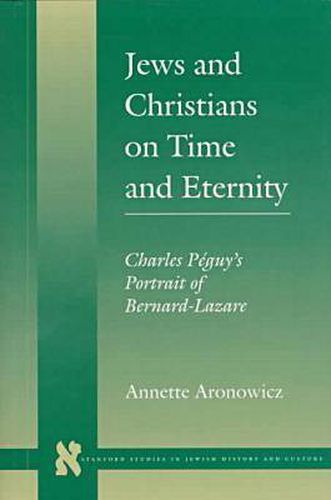Readings Newsletter
Become a Readings Member to make your shopping experience even easier.
Sign in or sign up for free!
You’re not far away from qualifying for FREE standard shipping within Australia
You’ve qualified for FREE standard shipping within Australia
The cart is loading…






This book grapples with a wide range of contemporary ethical and religious issues through the lens of the reflections of Charles PZguy on his friend and mentor Bernard-Lazare. Both PZguy, a leading French Catholic poet and philosopher, and Bernard-Lazare, an iconoclastic Jewish intellectual, were passionately involved in the Dreyfus Affair, which forms the background of these reflections. The book is in four parts. The first sets PZguy s portrait of Bernard-Lazare in a series of contexts, analyzing it against the background of the rampant antisemitism of its time, situating it in relation to present-day discussions about the Other, and, especially, placing it within various twentieth-century attempts to rethink religion. PZguy s great contribution in this area lies in redirecting our attention to the ways human beings respond to defeat, and to the ways the intellect is oriented by something outside itself, as keys to the discovery of the transcendent. His work reformulates the meaning of hope and incarnation.
$9.00 standard shipping within Australia
FREE standard shipping within Australia for orders over $100.00
Express & International shipping calculated at checkout
This book grapples with a wide range of contemporary ethical and religious issues through the lens of the reflections of Charles PZguy on his friend and mentor Bernard-Lazare. Both PZguy, a leading French Catholic poet and philosopher, and Bernard-Lazare, an iconoclastic Jewish intellectual, were passionately involved in the Dreyfus Affair, which forms the background of these reflections. The book is in four parts. The first sets PZguy s portrait of Bernard-Lazare in a series of contexts, analyzing it against the background of the rampant antisemitism of its time, situating it in relation to present-day discussions about the Other, and, especially, placing it within various twentieth-century attempts to rethink religion. PZguy s great contribution in this area lies in redirecting our attention to the ways human beings respond to defeat, and to the ways the intellect is oriented by something outside itself, as keys to the discovery of the transcendent. His work reformulates the meaning of hope and incarnation.